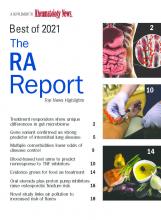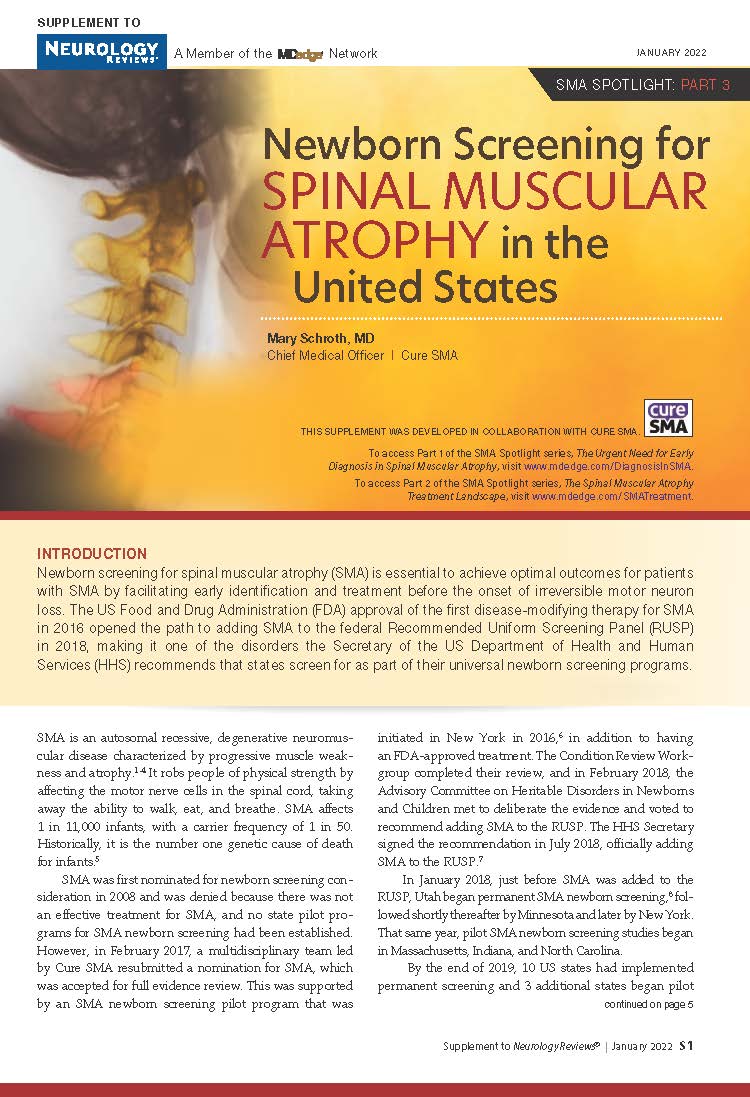User login
A Family Physician's Introduction to Lifestyle Medicine
This supplement will teach you about the 6 pillars of Lifestyle Medicine, looks at the future of Lifestyle Medicine, demonstrates the power of Lifestyle Medicine as evidence-based treatment of chronic disease, and describes how you can incorporate Lifestyle Medicine into your practice.
Click here to access this content now
This supplement will teach you about the 6 pillars of Lifestyle Medicine, looks at the future of Lifestyle Medicine, demonstrates the power of Lifestyle Medicine as evidence-based treatment of chronic disease, and describes how you can incorporate Lifestyle Medicine into your practice.
Click here to access this content now
This supplement will teach you about the 6 pillars of Lifestyle Medicine, looks at the future of Lifestyle Medicine, demonstrates the power of Lifestyle Medicine as evidence-based treatment of chronic disease, and describes how you can incorporate Lifestyle Medicine into your practice.
Click here to access this content now
Atopic Dermatitis: A supplement to Dermatology News
- PATIENT SATISFACTION WITH TREATMENT
- REDUCING ITCH
- BURDEN OF DISEASE IN BLACK PATIENTS
- BATHING RECOMMENDATIONS
- PATIENT SATISFACTION WITH TREATMENT
- REDUCING ITCH
- BURDEN OF DISEASE IN BLACK PATIENTS
- BATHING RECOMMENDATIONS
- PATIENT SATISFACTION WITH TREATMENT
- REDUCING ITCH
- BURDEN OF DISEASE IN BLACK PATIENTS
- BATHING RECOMMENDATIONS
Best of 2021: The RA Report
Best of 2021
The RA Report
A Supplement to Rhematology News
Contents:
- Treatment responders show unique differences in gut microbiome
- Gene variant confirmed as strong predictor of interstitial lung disease
- Multiple comorbidities lower odds of disease control
- Blood-based test aims to predict nonresponse to TNF inhibitors
- Evidence grows for food as treatment
- Oral steroids plus proton pump inhibitors raise osteoporotic fracture risk
- Novel study links air pollution to increased risk of flares
Best of 2021
The RA Report
A Supplement to Rhematology News
Contents:
- Treatment responders show unique differences in gut microbiome
- Gene variant confirmed as strong predictor of interstitial lung disease
- Multiple comorbidities lower odds of disease control
- Blood-based test aims to predict nonresponse to TNF inhibitors
- Evidence grows for food as treatment
- Oral steroids plus proton pump inhibitors raise osteoporotic fracture risk
- Novel study links air pollution to increased risk of flares
Best of 2021
The RA Report
A Supplement to Rhematology News
Contents:
- Treatment responders show unique differences in gut microbiome
- Gene variant confirmed as strong predictor of interstitial lung disease
- Multiple comorbidities lower odds of disease control
- Blood-based test aims to predict nonresponse to TNF inhibitors
- Evidence grows for food as treatment
- Oral steroids plus proton pump inhibitors raise osteoporotic fracture risk
- Novel study links air pollution to increased risk of flares
ObGyns—Leaders, not followers, in cervical cancer screening
Routine screening has substantially reduced cervical cancer incidence and mortality over the past few decades. As we reflect on the successes of cervical cancer screening, this article will highlight why it is important to assess the historical performance of screening and guidelines and determine where improvements can be made to continue driving towards the goal of cervical cancer elimination. It will also examine challenges physicians face when screening guidelines from professional societies differ. Given the impressive contributions that science and ObGyns have made in the last 80 years of cervical cancer screening in the United States, continued evaluation of society recommendations and consideration of tangible steps to move women’s health forward will further strengthen cancer screening for the benefit of patients.
Routine screening has substantially reduced cervical cancer incidence and mortality over the past few decades. As we reflect on the successes of cervical cancer screening, this article will highlight why it is important to assess the historical performance of screening and guidelines and determine where improvements can be made to continue driving towards the goal of cervical cancer elimination. It will also examine challenges physicians face when screening guidelines from professional societies differ. Given the impressive contributions that science and ObGyns have made in the last 80 years of cervical cancer screening in the United States, continued evaluation of society recommendations and consideration of tangible steps to move women’s health forward will further strengthen cancer screening for the benefit of patients.
Routine screening has substantially reduced cervical cancer incidence and mortality over the past few decades. As we reflect on the successes of cervical cancer screening, this article will highlight why it is important to assess the historical performance of screening and guidelines and determine where improvements can be made to continue driving towards the goal of cervical cancer elimination. It will also examine challenges physicians face when screening guidelines from professional societies differ. Given the impressive contributions that science and ObGyns have made in the last 80 years of cervical cancer screening in the United States, continued evaluation of society recommendations and consideration of tangible steps to move women’s health forward will further strengthen cancer screening for the benefit of patients.
Advancing Maternal-Fetal Immunology by Unlocking New Insights into Immune Pathways
In this supplement to OBGM, Neely Mozaffarian discusses how immunology researchers anticipate both improving the therapy for HDFN as well as developing diagnostic tests to identify women for whom HDFN might be an issue.
Click here to read more
In this supplement to OBGM, Neely Mozaffarian discusses how immunology researchers anticipate both improving the therapy for HDFN as well as developing diagnostic tests to identify women for whom HDFN might be an issue.
Click here to read more
In this supplement to OBGM, Neely Mozaffarian discusses how immunology researchers anticipate both improving the therapy for HDFN as well as developing diagnostic tests to identify women for whom HDFN might be an issue.
Click here to read more
Newborn Screening for Spinal Muscular Atrophy in the United States
Click here to read the supplement
Newborn screening for spinal muscular atrophy (SMA) is essential to achieve optimal outcomes for patients with SMA by facilitating early identification and treatment before the onset of irreversible motor neuron loss.
Click here to read the supplement
Newborn screening for spinal muscular atrophy (SMA) is essential to achieve optimal outcomes for patients with SMA by facilitating early identification and treatment before the onset of irreversible motor neuron loss.
Click here to read the supplement
Newborn screening for spinal muscular atrophy (SMA) is essential to achieve optimal outcomes for patients with SMA by facilitating early identification and treatment before the onset of irreversible motor neuron loss.
2021 Rare Diseases Report: Cancers

INTRODUCTIONS
Editor's Note: Looking forward
By Mark S. Lesney, PhD
The Rare Diseases Report: Cancers looks to the future from trial design to treatment for some of the most underserved diseases and patient populations.
NORD: Approaching rare cancers through a diversity lens
By Rebecca Aune and Debbie Drell
NORD advocates for all rare disease patients, no matter their race, ethnicity, religion, color, national origin, age, disability, sexual orientation, gender identity, etc.
CLINICAL REVIEWS
Precision medicine: A new approach to AML, other blood cancers
By Caleb Rans, PHARMD
Precision medicine makes groundbreaking strides in treating myeloid malignancies by integrating individual molecular data into patient care.
Coping with a shattered immune system: COVID and beyond
By Christine Kilgore
Questions abound about vaccine timing and the immune response in hematologic malignancies.
Racial disparities in blood cancer treatment
By Roxanne Nelson
An increasing number of studies have documented racial disparities among the study, treatment, and management of hematologic malignancies.
Overcoming obstacles in rare GU cancers
By Will Pass
Investigators are meeting the challenge of dealing with rare genitourinary cancers through collaboration, novel treatment efforts, and clinical trial design.
Mesothelioma trials: Moving toward improved survival
By Andrew D. Bowser
New and emerging therapy developments show promise of extended survival for select patients.
Metastatic uveal melanoma -- new drugs in pipeline, but prognoses still grim
By Randy Dotinga
As many as 50% of patients with this rare form of eye cancer develop tumors elsewhere.
Meeting the unmet need in multiple myeloma
By Walter Alexander
Multiple myeloma remains an incurable plasma cell disorder with near-certain relapse after successful treatment.
Rhabdomyosarcoma: Adaptive therapy borrows from nature
By Neil Osterweil
Researchers are applying evolutionary principles to the treatment of childhood, fusion-positive rhabdomyosarcoma.

INTRODUCTIONS
Editor's Note: Looking forward
By Mark S. Lesney, PhD
The Rare Diseases Report: Cancers looks to the future from trial design to treatment for some of the most underserved diseases and patient populations.
NORD: Approaching rare cancers through a diversity lens
By Rebecca Aune and Debbie Drell
NORD advocates for all rare disease patients, no matter their race, ethnicity, religion, color, national origin, age, disability, sexual orientation, gender identity, etc.
CLINICAL REVIEWS
Precision medicine: A new approach to AML, other blood cancers
By Caleb Rans, PHARMD
Precision medicine makes groundbreaking strides in treating myeloid malignancies by integrating individual molecular data into patient care.
Coping with a shattered immune system: COVID and beyond
By Christine Kilgore
Questions abound about vaccine timing and the immune response in hematologic malignancies.
Racial disparities in blood cancer treatment
By Roxanne Nelson
An increasing number of studies have documented racial disparities among the study, treatment, and management of hematologic malignancies.
Overcoming obstacles in rare GU cancers
By Will Pass
Investigators are meeting the challenge of dealing with rare genitourinary cancers through collaboration, novel treatment efforts, and clinical trial design.
Mesothelioma trials: Moving toward improved survival
By Andrew D. Bowser
New and emerging therapy developments show promise of extended survival for select patients.
Metastatic uveal melanoma -- new drugs in pipeline, but prognoses still grim
By Randy Dotinga
As many as 50% of patients with this rare form of eye cancer develop tumors elsewhere.
Meeting the unmet need in multiple myeloma
By Walter Alexander
Multiple myeloma remains an incurable plasma cell disorder with near-certain relapse after successful treatment.
Rhabdomyosarcoma: Adaptive therapy borrows from nature
By Neil Osterweil
Researchers are applying evolutionary principles to the treatment of childhood, fusion-positive rhabdomyosarcoma.

INTRODUCTIONS
Editor's Note: Looking forward
By Mark S. Lesney, PhD
The Rare Diseases Report: Cancers looks to the future from trial design to treatment for some of the most underserved diseases and patient populations.
NORD: Approaching rare cancers through a diversity lens
By Rebecca Aune and Debbie Drell
NORD advocates for all rare disease patients, no matter their race, ethnicity, religion, color, national origin, age, disability, sexual orientation, gender identity, etc.
CLINICAL REVIEWS
Precision medicine: A new approach to AML, other blood cancers
By Caleb Rans, PHARMD
Precision medicine makes groundbreaking strides in treating myeloid malignancies by integrating individual molecular data into patient care.
Coping with a shattered immune system: COVID and beyond
By Christine Kilgore
Questions abound about vaccine timing and the immune response in hematologic malignancies.
Racial disparities in blood cancer treatment
By Roxanne Nelson
An increasing number of studies have documented racial disparities among the study, treatment, and management of hematologic malignancies.
Overcoming obstacles in rare GU cancers
By Will Pass
Investigators are meeting the challenge of dealing with rare genitourinary cancers through collaboration, novel treatment efforts, and clinical trial design.
Mesothelioma trials: Moving toward improved survival
By Andrew D. Bowser
New and emerging therapy developments show promise of extended survival for select patients.
Metastatic uveal melanoma -- new drugs in pipeline, but prognoses still grim
By Randy Dotinga
As many as 50% of patients with this rare form of eye cancer develop tumors elsewhere.
Meeting the unmet need in multiple myeloma
By Walter Alexander
Multiple myeloma remains an incurable plasma cell disorder with near-certain relapse after successful treatment.
Rhabdomyosarcoma: Adaptive therapy borrows from nature
By Neil Osterweil
Researchers are applying evolutionary principles to the treatment of childhood, fusion-positive rhabdomyosarcoma.
Improving Heart Failure Outcomes Must Begin With Addressing Disparities in Care
In this supplement to Cardiology News, Ashkan Hayatdavoudi, MD, JD, discusses the importance of improving heart failure outcomes and how it must begin with addressing disparities in health care.
12/21 172428
In this supplement to Cardiology News, Ashkan Hayatdavoudi, MD, JD, discusses the importance of improving heart failure outcomes and how it must begin with addressing disparities in health care.
12/21 172428
In this supplement to Cardiology News, Ashkan Hayatdavoudi, MD, JD, discusses the importance of improving heart failure outcomes and how it must begin with addressing disparities in health care.
12/21 172428
A Treatment Option for Patients with Relapsed/Refractory AML
Over the past 5 years, the prognosis for patients with acute myeloid leukemia (AML) has changed markedly, thanks to the development and approval of several therapeutic agents.1 This supplement to Federal Practitioner reviews a once-daily oral formulation for relapsed/refractory patients with AML.
Click here to read the supplement.
11/21 HE-US-2100483
1. Bohl SR, Bullinger L, Rücker FG. New targeted agents in acute myeloid leukemia: new hope on the rise. Int J Mol Sci. 2019;20(8):1983.
Over the past 5 years, the prognosis for patients with acute myeloid leukemia (AML) has changed markedly, thanks to the development and approval of several therapeutic agents.1 This supplement to Federal Practitioner reviews a once-daily oral formulation for relapsed/refractory patients with AML.
Click here to read the supplement.
11/21 HE-US-2100483
1. Bohl SR, Bullinger L, Rücker FG. New targeted agents in acute myeloid leukemia: new hope on the rise. Int J Mol Sci. 2019;20(8):1983.
Over the past 5 years, the prognosis for patients with acute myeloid leukemia (AML) has changed markedly, thanks to the development and approval of several therapeutic agents.1 This supplement to Federal Practitioner reviews a once-daily oral formulation for relapsed/refractory patients with AML.
Click here to read the supplement.
11/21 HE-US-2100483
1. Bohl SR, Bullinger L, Rücker FG. New targeted agents in acute myeloid leukemia: new hope on the rise. Int J Mol Sci. 2019;20(8):1983.
Test Your Knowledge: Generalized Pustular Psoriasis Quiz
In this quiz to Dermatology News, test your current knowledge of Generalized Pustular Psoriasis. Join Abby S. Van Voorhees, MD, as she shares insights on GPP and understanding the disorder.
PC-US-123740 December 2021
In this quiz to Dermatology News, test your current knowledge of Generalized Pustular Psoriasis. Join Abby S. Van Voorhees, MD, as she shares insights on GPP and understanding the disorder.
PC-US-123740 December 2021
In this quiz to Dermatology News, test your current knowledge of Generalized Pustular Psoriasis. Join Abby S. Van Voorhees, MD, as she shares insights on GPP and understanding the disorder.
PC-US-123740 December 2021








